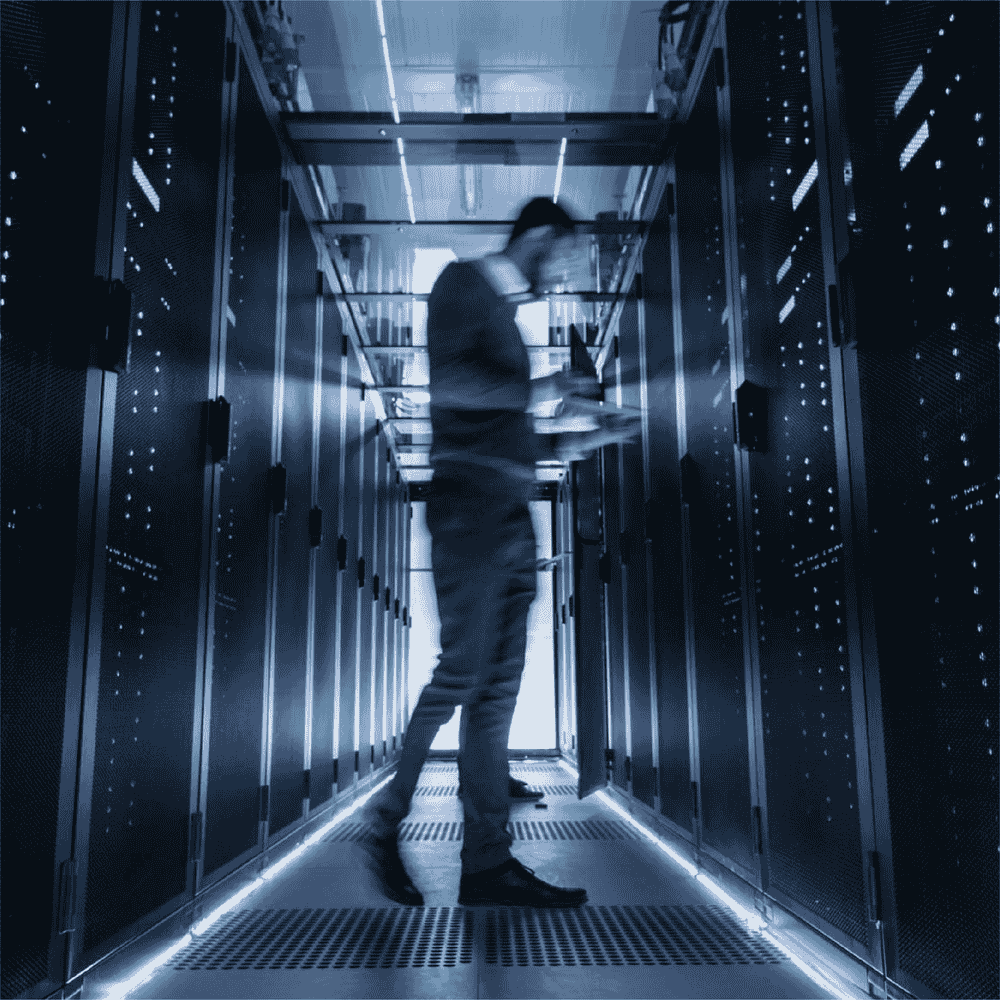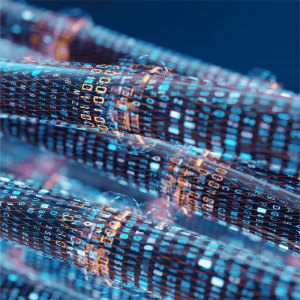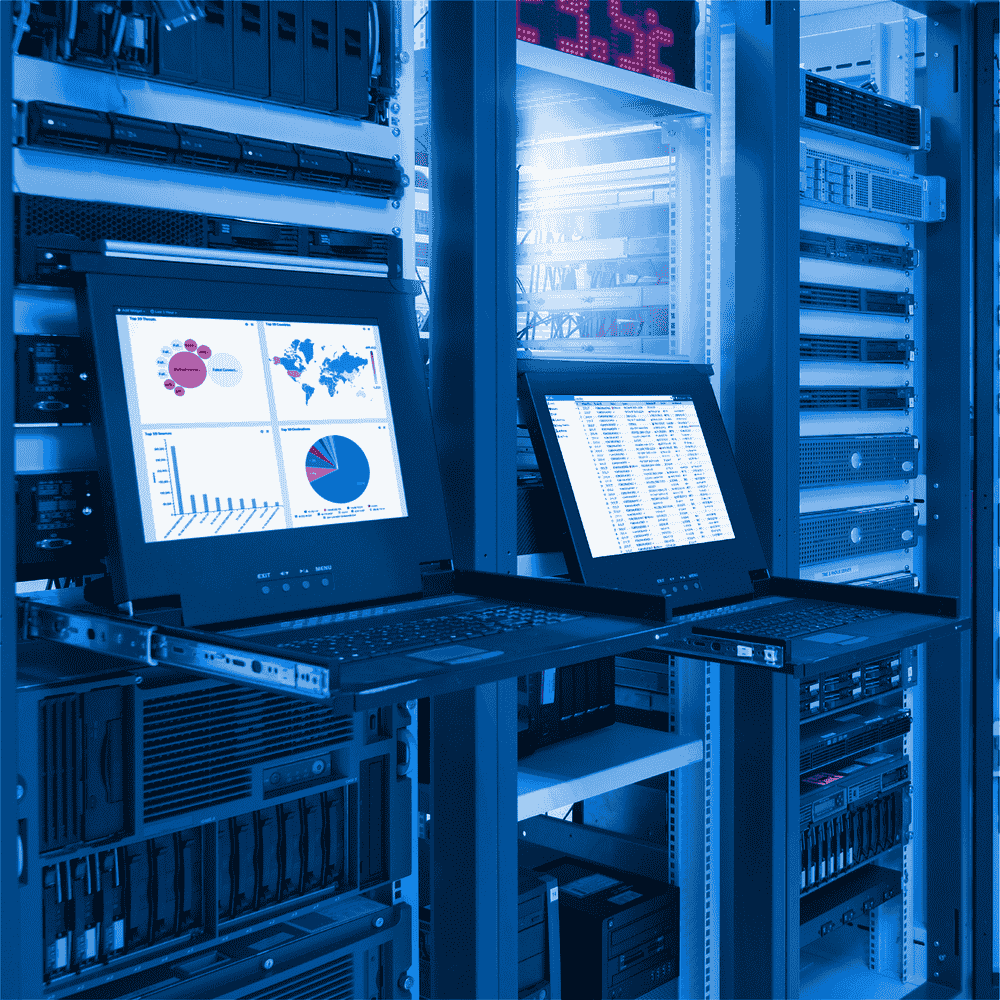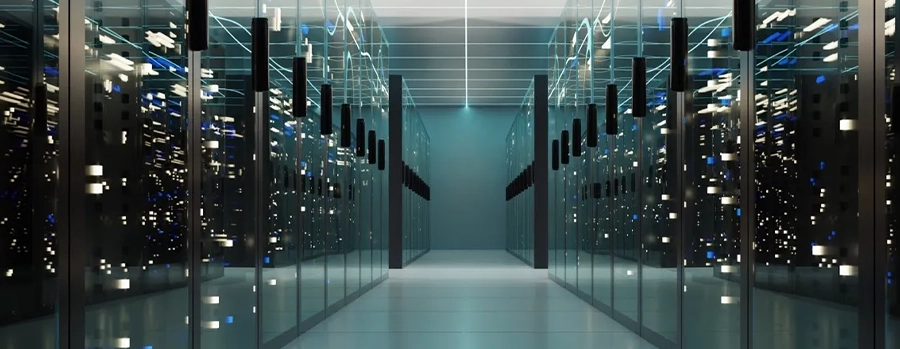The Secret of Data Center Infrastructure: Everything from Cooling to Security
As the digital age evolves, data centers have become the critical backbone of businesses, cloud services, and digital communication. These massive infrastructures store, process, and manage enormous amounts of data, supporting everything from e-commerce and AI-driven applications to enterprise IT and global connectivity.
But what ensures the smooth operation of these highly complex facilities? The hidden heroes behind data center infrastructure from cooling systems and power distribution to physical security and disaster recovery solutions play a crucial role in ensuring reliability, efficiency, and data protection.
In this blog post, we examine the key elements that make up a high-performing data center infrastructure.
1. The Importance of Cooling in Data Centers
Data centers are areas where high-performance servers are constantly running. These servers constantly generate a large amount of heat. If this heat cannot be effectively dissipated, hardware failures may be inevitable. This is where cooling systems come into play.
The most commonly used cooling methods in data centers include liquid cooling and air cooling. While liquid cooling can be more efficient in environments where servers are dense, air cooling is generally preferred in small and medium-sized data centers. The uninterrupted operation of cooling systems ensures that data is managed safely and sustainably.
2. Power Management and Backup Systems
A reliable energy source is needed for data centers to operate efficiently. However, a powerful energy source alone is not enough. Outages pose a great risk for data centers. For this reason, uninterruptible power supplies (UPS) and generator systems come into play.
UPS systems provide temporary power to the data center in case of sudden power outages and keep critical systems running until the generator kicks in. High-quality power management and backup systems ensure that data centers can operate under all conditions.
3. Physical Security in Data Centers
Although digital security is important, physical security is another important factor for data centers. Data centers are usually strategically located in secured areas, and entrances to the building are subject to strict security controls.
Physical security measures such as camera surveillance systems, biometric authentication devices, and security cards prevent unauthorized people from accessing data centers. In this way, only authorized personnel can work in the data center.
4. Fire Prevention and Extinguishing Systems
Data centers are sensitive places in terms of fire hazards. Fires can occur due to reasons such as short circuits or overheating. In order to prevent such risks, fire detection and extinguishing systems must work flawlessly.
Fire detection systems are usually equipped with sensitive smoke detectors and are automatically activated when any smoke or overheating is detected. Fire extinguishing systems generally use gas-based systems instead of water in data centers. In this way, servers are not damaged when extinguishing the fire.
5. Data Security and Backup
The most valuable asset in data centers is, of course, the data itself. Data protection and regular backup are one of the basic tasks of data centers. While data security is provided with various encryption and security protocols, advanced backup solutions are used for instant data backup.
Precautions taken against the risk of data loss include RAID configurations, cloud-based backup systems, and geographically distributed data backup strategies.
6. Network Management and Communication Infrastructure
Data centers must have a strong network infrastructure to operate successfully. Thanks to high-bandwidth, reliable network systems, uninterrupted data flow is provided between servers in data centers and the outside world.
Fiber optic cabling is widely used for high-speed data transfer. In addition, network management software monitors data traffic and takes precautions against network problems that may occur instantly.
Conclusion: A Good Infrastructure Means a Safe and Efficient Data Center
Data centers can operate smoothly and provide reliable service when managed correctly. From cooling systems to power management, from physical security to data backup, all these elements are critical for the smooth operation of the data center. A well-designed and managed data center infrastructure enables businesses to provide uninterrupted and secure digital services.
You can contact our experts to learn more about your data center infrastructure and get support on the latest solutions.






